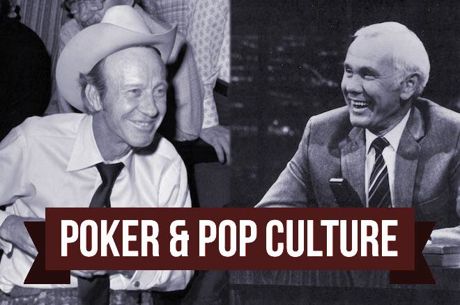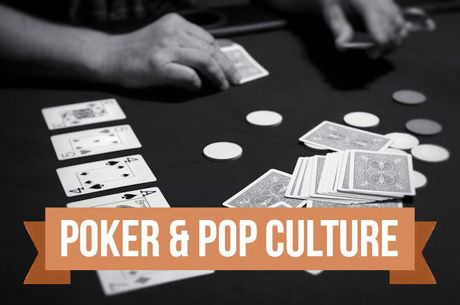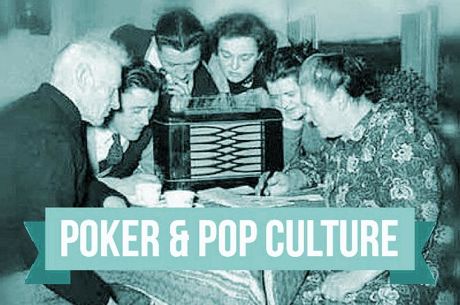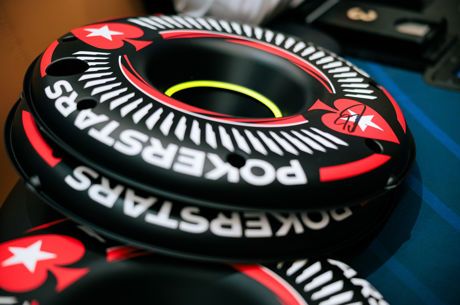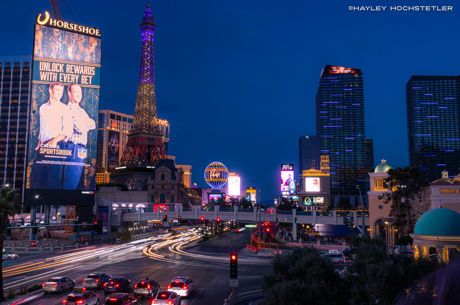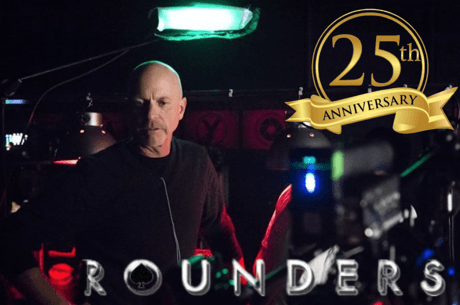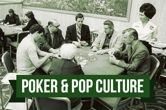Poker & Pop Culture: Remembering the California Club With 'California Split' Writer Joseph Walsh
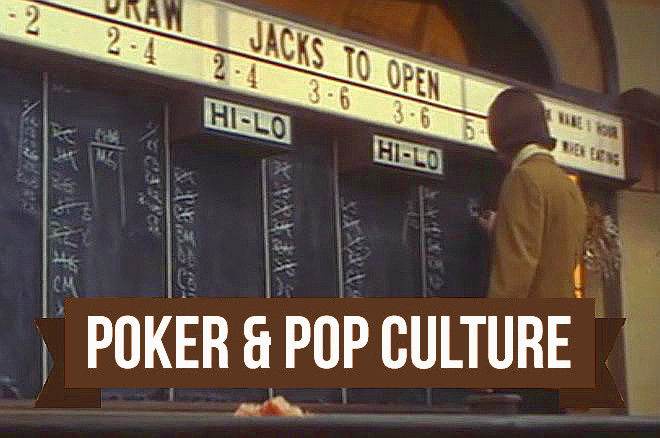
Last week in this space we began a discussion of the popular California poker clubs, looking in particular at anthropologist David Hayano's efforts to describe and examine the clubs' fascinating subculture in his 1982 book Poker Faces.
For a while only Californians and those making the short trip west from Las Vegas and other Nevada casinos knew about the California rooms and their nonstop games. However by the time Hayano wrote his book the rest of the country had started to become aware of them, too.
One reason for this new, nationwide attention to California poker was the 1974 feature film California Split directed by Robert Altman and starring Elliott Gould and George Segal. Regarded by many as the best, most realistic gambling movie ever made, California Split finds its characters wagering their money in a wide variety of ways, with horse racing, boxing, pick-up basketball, craps and roulette among the highlighted games.
But poker �� and specifically California poker �� is where the pair's journey begins, and is the game around which much of their story revolves. If you want to experience what it was like inside those California poker rooms during their heyday �� what it was actually like to play in those games �� you could do a lot worse than to start with the first epic scene of California Split set in the fictional but uncannily-real "California Club."
We continue our "California swing" this week with a real treat �� a conversation with Joseph Walsh, writer and co-producer of California Split. Walsh's career in film and television dates all of the way back to the late 1940s where he began as a child actor, with California Split remaining a career highlight and a work that continues to garner acclaim and new fans as the years go by.
"I constantly get calls on it," says Walsh. "It has a legion of fans that's unbelievable, still today."
A big reason why the film continues to endure is its purposely non-romantic, non-glorified depiction of gambling, starting with those unique California poker games played not by gunslinging card sharps, debonair and clever heroes or style-conscious masterminds, but regular, real people.
"There's not a phony move in the picture," explains Walsh �� and anyone who has seen the film would agree. "Not one phony close-up or anything.... You watch it and recognize that you could be sitting at the table, if you can play at all."
A Movie About "Regular Guys Who Needed to Gamble"
Walsh tells the story of how California Split came to be in his highly entertaining, at times laugh-out-loud funny 2008 autobiography Gambler on the Loose.
As the title suggests, Walsh is a lifelong gambler himself. And he had to do a lot of bluffing of studio executives to get any of them interested in a realistic portrayal of gambling featuring characters who "weren't heroes," but rather "regular guys who needed to gamble to feel more alive �� basically more victim than hero."
Making some headway, Walsh managed to get the project far enough along for Steven Spielberg to be on board to direct at one point, with The Cincinnati Kid himself, Steve McQueen, even expressing interest. Thankfully for Walsh �� and the rest of us �� those early fits and starts didn't pan out, as Columbia Pictures and Altman were eventually the ones to make Walsh's picture, with Altman and Walsh co-producing.
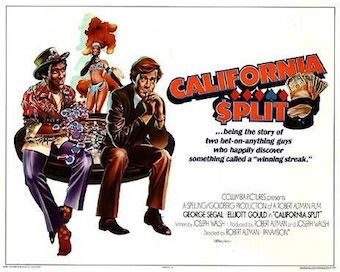
On the surface, the film might look like a "buddy picture" with its two main characters �� Charlie Waters (Gould) and Bill Denny (Segal) �� meeting by chance at the beginning, winding their way (mostly, but not always) together through an episodic plot, and experiencing a kind of climactic gambling moment at the end.
But Charlie and Bill couldn't be more different, and the tension between their contrasting attitudes toward gambling prevents their story from taking the formulaic turns one might find in a "buddy picture."
"Charlie gambles as a way of life," explains Walsh (in fact the character is based largely on himself). "But Bill gambles to supply something that is missing in life." As a result, Charlie "can take the wins and losses more easily," while Bill is "always a bit more desperate for wins and money and everything else."
Such a dynamic allows both gamblers and non-gamblers to become immersed in the world the film presents.
"There are more Bills than Charlies out here in the world," notes Walsh. "The majority of people... 80 or 90 percent of them I've met in my life" are like Bill, a character who Walsh says "is going to pay a price every day of his life that he gambles." (Speaking of, Walsh actually plays a small role in the film himself as a bookie who applies some pressure on Bill after he's failed to pay what he owes.)
That in and of itself is one important way California Split is unlike most movies featuring poker or gambling �� the fact that the film depicts people gambling for different reasons and with different motivations, and carefully avoids judging them at every turn. Walsh then places these realistic characters in realistic gambling contexts, starting with the remarkable "California Club."
A Different World
The film's opening 10-minute sequence takes place in what looks for all the world to be an actual California card room. As the opening credits roll, we see a staff member manning the chalkboard with player lists (see above), with Charlie and Bill separately being assigned seats at a $10/$20 lowball table where they first meet.
"I probably played in those clubs a dozen times, tops," says Walsh. "It was very unwieldy, very strange. The characters [who played there] were all unique and weird to me, with women and older men and people with their pensions going there to compete."
Walsh is summarizing Hayano's findings about the demographics of the California poker rooms, circa 1970s �� a population quite different from the post-online, post-televised poker one with which we're now familiar.
"It was strange... but it was fascinating," Walsh continues. "And my brain was kind of cooking. I thought this has to be created one day [in a film]. This is a different world, my god! This collage of the strangest people I've ever seen... was nothing like what had been presented ever before. I mean this was an eclectic group, playing for life and death out there. And surly!"
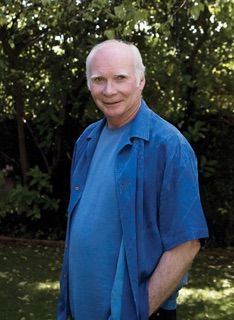
Those who have seen the opening of Split know just how surly things get as we watch the players dealing hands to one another while complaining about the cards they are dealt and the passing of time (for which they're being charged). Things then turn violent after a player named Lew wrongly suspects collusion between Charlie and Bill (who, again, are total strangers to each other) in a hand in which Charlie takes the last of Lew's stack.
Lew �� played by Walsh's brother, Edward �� is enraged at Charlie, though Bill is the one who ends up taking a punch. In the ensuing chaos, everyone scrambles to scoop up his or her chips.
It couldn't be less glamorous.
"The way the movies had played it for years, everybody was kind of cool sitting behind their glasses. And of course they would overdramatize everything... like in Cincinnati Kid with Karl Malden saying 'the kid's got him' [during that film's final hand]. I knew when I did California Split I wanted to get away from that 'the kid's got him' mentality right away."
Along with removing all of that stylized embellishment from poker, the film likewise omits the sort of moralizing that tells viewers exactly what to think about what they are watching.
"Gotta be no preaching, gotta be no sermons," says Walsh. "I just wanted to lay out this life. And if you present another world to people, that is so different �� even if they don't have a gambling mentality �� they will be fascinated with it."
Adding further to the game's realism, the other players at the table were themselves poker players, the only exception being George Segal who had never gambled in his life before making Split �� a background that helped make his portrayal of the often-anxious Bill all the more believable.
"I surrounded that table with gamblers," says Walsh. "Then, of course all the other tables were filled with gamblers that I knew, too."
Extras in the scene included residents of Synanon, a drug rehabilitation program located in Santa Monica then in operation �� "people who had been gambling their whole life," says Walsh.
What the Heck is a 'Seven-Smooth'?
Another way the scene distinguishes itself from just about every depiction of poker that came before it is the fact that the players aren't playing five-card draw or stud, but lowball.
"You know how unheard of that was?" asks Walsh. "A 'seven-smooth' beats a 'rough-eight'?" he says, alluding to how some watching the film wouldn't necessarily know what those hands were.
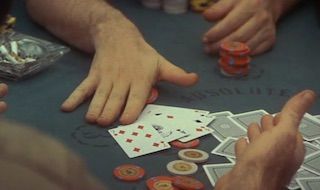
Even the executives at Columbia weren't too crazy about kicking the movie off with a less-than-mainstream card game. Walsh tells how they broached the topic to him.
"Joey," they said, "you know we love the script, we love the two guys.... But can't you just make it four kings beating four queens?"
"I said I could do that," Walsh says. "If you want to lose money."
Continuing the story, it's clear that the desire to tell a realistic story included for Walsh a determination not to underestimate the viewer.
"The audience doesn't have to know everything that's going on. They'll know what a win and a loss means. You're trying to dumb it down [when you have] four kings beat four queens. But they'll know who won and who lost from the reactions."
As Walsh points out, keeping true to the game also ensured gamblers with a knowledge of lowball would "come out and say 'you've got to see this film... it's so authentic! It's made for us!"
"It was reverse commercialism," says Walsh with a chuckle.
More Real Than Reality
There's a second scene in the California Club, a short one featuring Bill and Charlie going back and losing steadily to tables full of older women. Again, it's about as anti-romantic a depiction of poker as you can imagine, with the pair exchanging looks from neighboring tables (along with a thumbs-down by Charlie) that clearly say what both are thinking �� this sucks.
"They're looking at each other and the ladies are beating the shit out of them!" laughs Walsh, gleefully recalling the predicament in which he placed his protagonists.
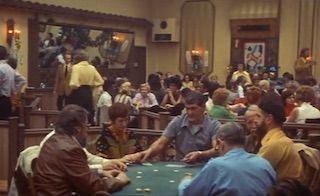
There had been a plan early on actually to try to film at the Gardena Club, but as Walsh remembers that idea had to be scuttled.
"They could only give us four hours, and it had to be from 4 a.m. to 8 a.m., when basically they had only a few tables going," says Walsh. "Altman and I said no, the poker room has got to be central to this picture."
"We went to Leon Ericksen who was a genius at set design. He went down to see those clubs in Gardena, then we found this big empty dance hall somewhere in Hollywood and took the bars out of it and he built that room."
The California Club is so realistic, it has even fooled veterans of the very card rooms upon which it was based.
"To this day guys will tell me 'oh no, no... that was the Gardena Club or that was the Normandie Club �� I played there."
"And I say 'really?' And I ask them how much they'd like to bet."
"That recreation is so good it fools the gambler... you are seeing the real thing. And it was the best move we ever did. We shot in there for at least 10 days for that first sequence. It's so cinematic... so good. And it opens everybody's eyes to that world."
Only in California
There's one other poker scene late in the film �� in Reno �� that is also an absolute gem, one that features Amarillo Slim Preston making a cameo essentially playing himself. But as Walsh points out, the California Club remains a kind of centerpiece in Split.
That said, if director Robert Altman had had his way, they might have gone out of state to go to California.
Altman famously hated Hollywood, and early in the project had scouted locations in Chicago and Kentucky as alternate places to film.
"He was going to settle on Chicago," says Walsh. "He picked out where the club would be and the whole thing and asked me what I thought. And I said, 'well, if you do it, you start off with a lie right away when we're trying to be authentic. So you're breaking my heart, Bob, if you're going to make that decision.'"
That's because the world they wanted to depict �� the real one �� was somewhere else.
"I said this world, it doesn't exist in Chicago. It doesn't exist in Kentucky. It only is in California. In Gardena... it was a total novelty at the time. It didn't exist anywhere else. Thank goodness, I prevailed."
Much thanks to Joseph Walsh for sharing those stories of California Split. More next week from another recent attempt to preserve and pass along the world of those California poker clubs in a new documentary.
From the forthcoming "Poker & Pop Culture: Telling the Story of America's Favorite Card Game." Martin Harris teaches a course in "Poker in American Film and Culture" in the American Studies program at UNC-Charlotte.
Photo: Stop Smiling magazine/site.

